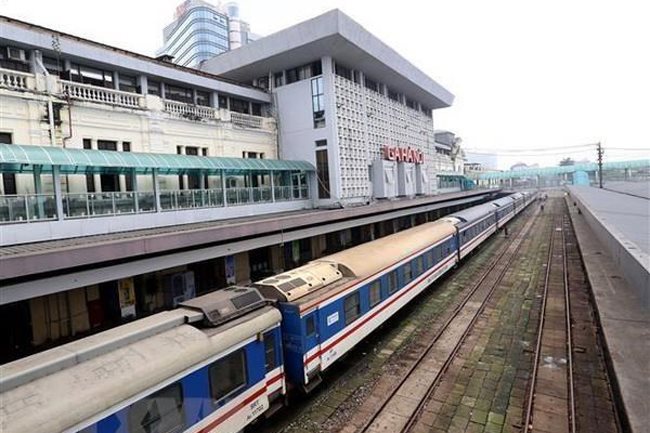
Prime Minister Nguyen Xuan Phuc has set up a State council to look into the North-South express railway project. This decision comes after the Ministry of Transport (MOT) and the Ministry of Planning and Investment (MPI) presented significantly different cost estimates for construction of the rail line.
Prime Minister Nguyen Xuan Phuc has set up a State council to look into the North-South express railway project. This decision comes after the Ministry of Transport (MOT) and the Ministry of Planning and Investment (MPI) presented significantly different cost estimates for construction of the rail line.
The council, which is led by Minister of Planning and Investment Nguyen Chi Dung and his deputy ministers, will review the prefeasibility study of the transnational railway project.
 |
| A train travels past Hanoi Station in the capital city of Hanoi. The prime minister has established a council to review the North-South express railway project – PHOTO: VNA |
Other members include leaders from various ministries, such as transport, finance, construction, science and technology, and justice; as well as the heads of the State Bank of Vietnam and of the Commission for the Management of State Capital at Enterprises.
The leaders of many local governments, such as Hanoi, Danang, Dong Nai, and HCMC, where the railway is expected to travel through, will also join the council.
The council is allowed to retain a team of local and international consultants, but the group should be independent of the project’s own consultants, so that they provide an objective assessment of the prefeasibility study.
If necessary, the council may use the seal and bank account of the MPI to authorize its activities.
The MOT is responsible for providing files necessary for the appraisal process of the project, and arranging capital for the setup, appraisal and approval of the prefeasibility study, in line with prevailing regulations.
The council will disband as soon as it completes its task.
Earlier this week, the MPI unveiled a study for the transnational express railway project, putting the cost at US$26 billion. This cost was far lower than a scheme prepared by the MOT, which estimates the cost at US$58.7 billion.
In its plan, the MPI said the railway should have a designed train speed of 200 kilometers per hour, to be used for both cargo and passenger transport, while the MOT’s scheme targets a designed speed of 350 kilometers per hour, and would be used to carry only passengers.
According to the MPI, the most efficient train speed should be limited to 200 kilometers per hour, as in most developed countries. The study was conducted by the ministry, with the involvement of experts from the Netherlands and Germany.
The MOT, in a measured response to the MPI report, defended its study, which it said was prepared by a group of researchers as project consultants.
In its statement on Tuesday, the MOT pointed out that it followed due process in preparing the study. As of January 2019, the ministry gained feedback from nine out of ten ministries and agencies, which largely approved the scheme.
(Source:SGT)





